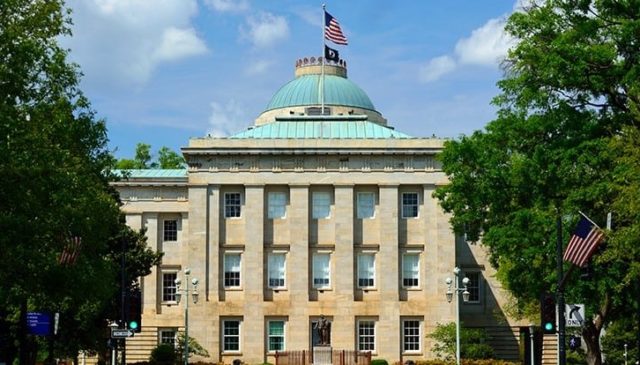
Despite a busy year on the state level and multiple bills announced and introduced into Congress, not much legislative progress has been made on federal cannabis policy in 2021.
Late last month, the House took yet another preliminary step towards the regulation of financial services for cannabis by including banking provisions in a limited budget proposal approved by a full floor vote.
The “minibus” package, which includes appropriations for important government agencies like the Occupational Safety and Health Administration (OSHA), Centers for Disease Control (CDC) and the Social Security Administration, also contains a section preventing federal dollars from being used to penalize financial institutions for doing business with cannabis companies.
Including the standalone Secure and Fair Enforcement (SAFE) Banking Act, which passed the House twice on its own and once as part of an October 2020 COVID relief bill, the minibus marks the fourth time the full House of Representatives has approved cannabis banking since 2019.
Will the fourth time be the charm for financial services and cannabis? Could the acceptance of standalone banking regulations sap momentum for full scale reform?
Cannabis Business Times and Cannabis Dispensary spoke with prominent associations in the industry to answer these questions and determine whether or not banking protections have a real chance of passing this year.
Comparing the minibus cannabis regulations to its predecessors
Experts and analysts have pointed out that the banking protections included in the spending package aren’t as comprehensive as the SAFE Banking Act. And unlike the Cannabis Administration and Opportunity Act recently announced by Sens. Booker and Wyden, it doesn’t address the legal standing of the plant.
For cannabis advocates, the smaller focus is less desirable than wholesale cannabis reform but may indicate the issue still matters to legislators.
“While limited in scope, appropriations riders are important opportunities for Congress to demonstrate its priorities and intent. They are often precursors to comprehensive reform legislation,” said Bo Bryant, Senior Vice President of Government Relations at the U.S. Cannabis Council, via email.
Amber Littlejohn, Executive Director of the Minority Cannabis Business Association, agreed: “I believe lawmakers understand the importance of access to capital and want a solution that actually addresses the issue.”
The narrower provisions could also make the language more likely to make it through the more conservative Senate, which has to finalize the budget before it’s sent to President Biden for approval.
“The House has spoken on this issue conclusively at this point, but in terms of the Senate, I don’t really see strong opposition to keeping it [cannabis banking protection] in the final bill considering the standalone legislation has bipartisan support,” said Morgan Fox, Media Relations Director at the National Cannabis Industry Association.
Reconciling standalone banking with descheduling
The limited nature of the budget’s provisions on cannabis banking also raise another concern: accepting financial reform or pushing for full legalization. These ideas aren’t mutually exclusive, but Sen. Cory Booker (D-NJ) seemed to raise the issue at the press conference unveiling his new reform bill, promising to “do everything I can to stop an easy banking bill that’s going to allow all these corporations to make a lot more money on this as opposed to focusing on the restorative justice aspects.”
Booker later backtracked, expressing support for the SAFE Banking Act, but his original line of thinking – that financial reform alone would detract from efforts to pass criminal justice changes – isn’t new.
Industry insiders pushed back against the idea that pursuing banking reform and full-scale federal legalization is an either/or proposition.
“I’m deeply troubled by the idea that it’s one or the other,” said Littlejohn. “This idea that SAFE Banking is about corporate cannabis is preposterous. Big cannabis doesn’t need SAFE. In fact, cash strapped small and minority owned businesses help big cannabis companies maintain their competitive advantage.”
“Every time an incremental bill is passed it becomes easier for lawmakers on the fence to feel comfortable voting in favor of farther-reaching legislation,” agreed Fox, who called the idea that passing SAFE Banking would detract from criminal justice reform “a common misconception.”
“We need banking reform and cannabis legalization,” added Bryant. “Small businesses, particularly minority-owned ones, urgently need access to basic banking services — right now.”
The continued focus on federal cannabis reform is inarguably a good sign. But with the Senate in recess until September and the House expected to end its break early to vote on trillions of dollars in infrastructure spending, the fate of legislation on cannabis banking – or any other reform – is still mostly up in the air.
